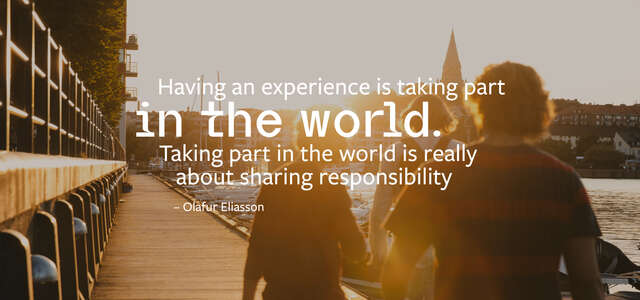A Nordic perspective for the New European Bauhaus focuses on inclusion, sustainability and nature

Almost two thousand architects and others interested in the built environment participated in the five joint Nordic events arranged this spring to gather ideas and examples for the European Commission.
The events were held to create a Nordic perspective for the New European Bauhaus initiative. According to the participants, Nordic values, such as sustainability, closeness to nature, equality and inclusion, are the basis of high-quality living and construction. A report on the results of the Nordic collaboration, compiled by Finland’s Ministry of the Environment together with Archinfo Finland, has been published and submitted to the European Commission. You can read the report here.
“Nordic countries want to show an example of how to build a carbon neutral welfare society. That is why we were very pleased to receive so many Nordic views and ideas. We will forward the results to the European Commission’s Bauhaus team for further development”, says Matti Kuittinen, Senior Adviser at the Ministry of the Environment.
The series of joint Nordic events was coordinated by Finland, the chair of the Nordic Council of Ministers for this year. The five events arranged from March to May this year attracted a large group of professionals in creative fields, students, researchers as well as public administrators. Architects were the most prominent professional group, representing 16% of the participants.
The topics discussed included climate change, circular economy, biodiversity, timber construction, digitalisation, children and young people, learning, equality and well-being.
“The quality of the living environment is considered important. When the participants of the first event were asked what they wished to concentrate on in the next event, the vote was aesthetics. In addition to being ecological and functional, a high-quality environment is also pleasant and comfortable”, says Petra Havu, Counsellor for Cultural Affairs at the Ministry of Education and Culture.
Emphasis on the importance of nature
The importance of nature came up in different contexts. Nature was perceived as an important part of the built environment both in terms of people’s well-being and biodiversity. Accessibility of larger natural environments was also considered important. Nature was identified as a source of innovation for sustainable construction.
Other topics discussed included global warming, which will inevitably change Arctic nature in particular. The Arctic environment and landscape have affected the Nordic concept of aesthetics, which will also change with future developments.
During the discussions, inclusion and equality were brought up as a starting point for the Nordic design tradition. Art, design and architecture have played a key role in the creation and development of a Nordic welfare state. According to the participants, this should remain unchanged.
There was a strong focus on sustainable construction, and a clear shift from demolition to renovation and adaptation was called for in several discussions. A shift to a circular economy received strong support. Wood architecture and nature-based solutions were seen as an important part of carbon neutral construction.
New European Bauhaus pilot projects to start in the autumn
The New European Bauhaus is an initiative of the European Commission to promote sustainable development, inclusion and beauty in the built environment and housing. The aim is to find better ways to live through joint planning and development – and to harness art and culture, side by side with science and technology, to solve the biggest challenges of our times, such as climate change. The initiative helps to deliver the European Green Deal.
The content and format of the initiative are built around European ideas, examples and challenges. Everyone is welcome to join the table – architects, designers, artists, researchers, companies, organisations, students, children and young people. In the autumn of 2021, the European Commission will launch a group of pilot projects, the themes of which will be based on the results of the co-development phase.
The Nordic co-design and development work will continue during the autumn, and an event focused on digitalisation in the built environment will follow. The Ministry of the Environment will be responsible for the future events, too, with the help of Archinfo Finland.
More information
Read more about the Nordic co-design events at www.nordicbauhaus.eu
Read about the New European Bauhaus initiative on the European Commission website through this link